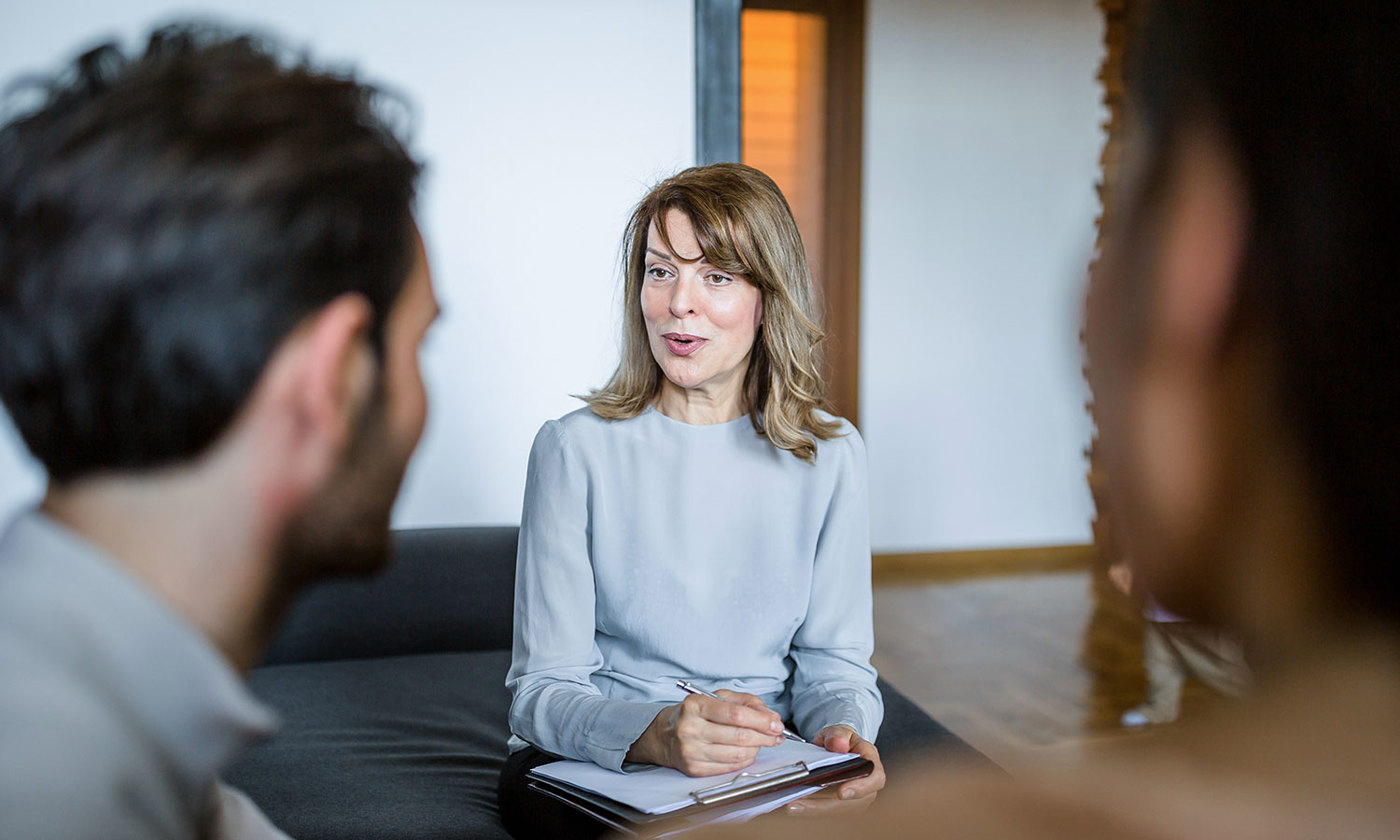Like what you see?
Sign up to receive more free parenting advice.
Thank you for subscribing to our newsletter!
Child Development

Credit: iStock.com/NoSystem images
In the third trimester of pregnancy, new parents are often booked into antenatal classes, where they are given a crash course in what happens in the delivery room, how to breastfeed successfully, how to change a nappy and a warning that sleep deprivation is a very real thing.
Basically, a how-to-survive-the-first-three-months.
After that, dear parent, you are on your own.
In any other job, people are trained. Sometimes for years. However, with parenting, there is a real sense that parents are just supposed to naturally know how to parent.
“There is a very real message that raising children ‘should just come naturally’”, says Dr Becky Kennedy, clinical psychologist and author of Good Inside: A Guide to Becoming the Parent You Want to Be.
She explains that messages like this can hold parents back from seeking support.
“Without guidance and support, we would parent the way we were parented, and this is often not the way parents want to interact with their children,” she says.
“What then happens, is every time they parent in a way they don’t want to parent, they blame themselves.
“Instead, they should feel empowered to seek out resources and information to learn how to be the parent they want to be.”
She explains that, unfortunately, society doesn’t always value the role of a carer the same way it values other professions, as it’s done in the home and doesn’t draw any income.
“Parenting feels hard, because it is hard,” she emphasises.
“As a parent, you are an essential worker, and essential workers deserve to feel confident, empowered and equipped to do the job in a way they want to.
“Seeking out parenting resources and support isn’t a sign you, as a parent, aren’t coping, it’s a sign of the strength within you.”
The benefits of seeking support
Carol Markie-Dadds, Triple P International Country Director, says that Australian parents are more open to the idea of participating in parenting courses than previous generations.
“All parents want to be the best parent they can be for their child,” she says.
She explains that one contributing factor to parents being more open to parenting courses is due to it being quite common for extended family support to live far away.
Parents also want to ensure the advice they are getting is evidenced-based and proven and are looking for both online and face-to-face support.
Triple P – Positive Parenting Program is an evidenced-based, Australian-developed and government funded suite of online programs available free to Australian parents.
“One of the reasons Triple P is so useful is that it gives a whole range of evidenced-backed effective ideas and strategies that parents can adapt to their own family values, beliefs and needs,” she says.
“We want parents to trust their own instincts and to do what works for them.”
Dr Kennedy adds that parenting can sometimes feel quite isolating, particularly today when there is not always a sense of community when raising children.
“In this time of disconnection, I have noticed parents are craving connection with experts and other parents who are truthful in how hard raising children can be,” she says.
She has created a membership-based program to provide parents with a real sense of community while accessing her online workshops.
“Parents want to learn trusted information along with other parents to be empowered, supported, seen and have the resources to show up for their children in a way that feels good to them,” she explains.
Ms Markie-Dadds recommends parents shouldn’t wait until there is a problem to seek out support.
“Research shows parents are more interested in parenting courses when their baby becomes more active and when their children are making key life transitions such as starting preschool, school or high school,” she explains.
“Parents are also more interested in seeking out support when they are concerned about their children’s emotional and behavioural development.”
She also says that the benefit of parents seeking out support extends to the children.
“When parents are supported with the right tools and strategies to confidently parent, it takes a lot of the everyday stress out of parenting,” Ms Markie-Dadds explains.
“Children who grow up with warm and loving parents, who are consistent and nurturing, they’re more emotionally resilient and better able to cope with the ongoing ups and downs that life inevitably brings.”
She adds that parenting is all about the little things parents do every day, like, being affectionate, being a good listener and guiding children through teaching not punishment.
“All of that has a long-lasting effect on children. Shaping their view of themselves and the world around them,” she says.
Without guidance and support, we would parent the way we were parented, and this is often not the way parents want to interact with their children.Dr Becky Kennedy
Stay up to date with the latest news and articles from First Five Years
Thank you for subscribing to our newsletter!
Parenting advice can be overwhelming
A common problem all parents can agree on is that there is a lot of information out there on the best way to parent.
Not only that, at times, the advice can be conflicting.
“One of our key messages to parents and carers is to look for information that’s evidence-based, and from trusted sources,” recommends Ms Markie-Dadds.
“Ask professionals like your GP, paediatrician, child psychologist, teacher, and other health professionals and support workers, and look for government endorsed material.”
She adds that if the advice seems to be based on one person’s opinion, or if it looks unrealistic, to walk (or scroll) away.
“We have to check-in with ourselves when we consume any information,” adds Dr Kennedy.
“Ask yourself: ‘Is this something I want to consider?’, ‘Is this saying there is only one right way?’, ‘Does this information make me feel overwhelmed or empowered?’.
“In this age of information-overload on any topic, we need to give ourselves permission to switch off if it doesn’t feel right.”






